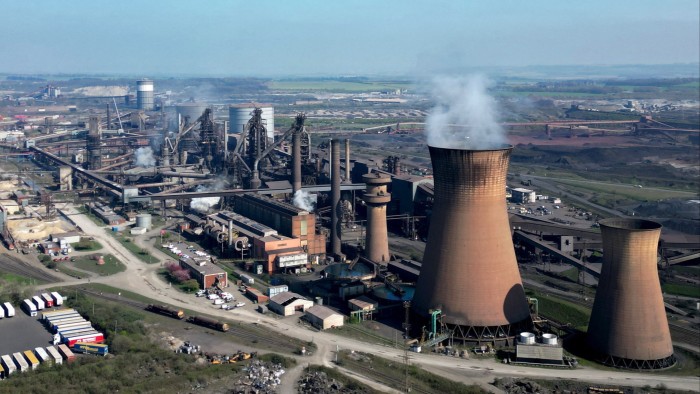Unlock the Editor’s Digest for free
Roula Khalaf, Editor of the FT, selects her favourite stories in this weekly newsletter.
Parliament will be recalled on Saturday to debate emergency legislation to keep open the British Steel site at Scunthorpe, as ministers race to avoid the company’s collapse and the loss of 3,500 jobs.
Sir Lindsay Hoyle, House of Commons speaker, announced on Friday he had granted a request for a recall of MPs on Saturday “to take forward legislative proposals to ensure the continued operation of British Steel blast furnaces is safeguarded”.
Downing Street said the legislation would allow the government to “direct steel companies in England” but said it would stop short of the full nationalisation of British Steel.
A spokesman for Prime Minister Sir Keir Starmer said: “The bill provides the government with the power to direct steel companies in England, which we will use to protect the Scunthorpe site.
“It enables the UK government to preserve capability and ensure public safety. It also ensures all options remain viable for the future of the plant and the livelihoods it supports.
“We have been negotiating with British Steel’s owners in good faith ever since coming to office. We have always been clear there is a bright future for steel in the UK. All options remain on the table.”
A government official said the new powers would be used to keep the blast furnaces in operation and to order new raw materials to keep the site functioning.
Talks have been going on all week between ministers and Jingye Group, the Chinese owner of British Steel. MPs will meet at 11am in a highly unusual Saturday sitting to discuss the emergency legislation.
Jingye warned last month that the company’s two remaining blast furnaces — the last in Britain — were no longer financially viable and started consultations on job losses.
The closure of the furnaces at British Steel’s plant in Scunthorpe would leave the UK as the only G7 country unable to make steel from scratch using raw materials.
Maintaining Britain’s steelmaking has become a major strategic priority for the government, which has put aside £2.5bn to support the sector.
Starmer’s government is also developing an industrial strategy to back key sectors, and is particularly concerned about the threat to the steel industry from Donald Trump’s 25 per cent global tariff on US steel and aluminium imports.
British Steel declined to comment.
Roy Rickhuss, general secretary of the Community steel union, welcomed the emergency session: “It is in the national interest that a solution is found to secure a future for British Steel as a vital strategic business. We can’t allow Britain to become the only G7 country without primary steelmaking capacity.”
An earlier version of this story incorrectly said the emergency legislation was to nationalise British Steel




